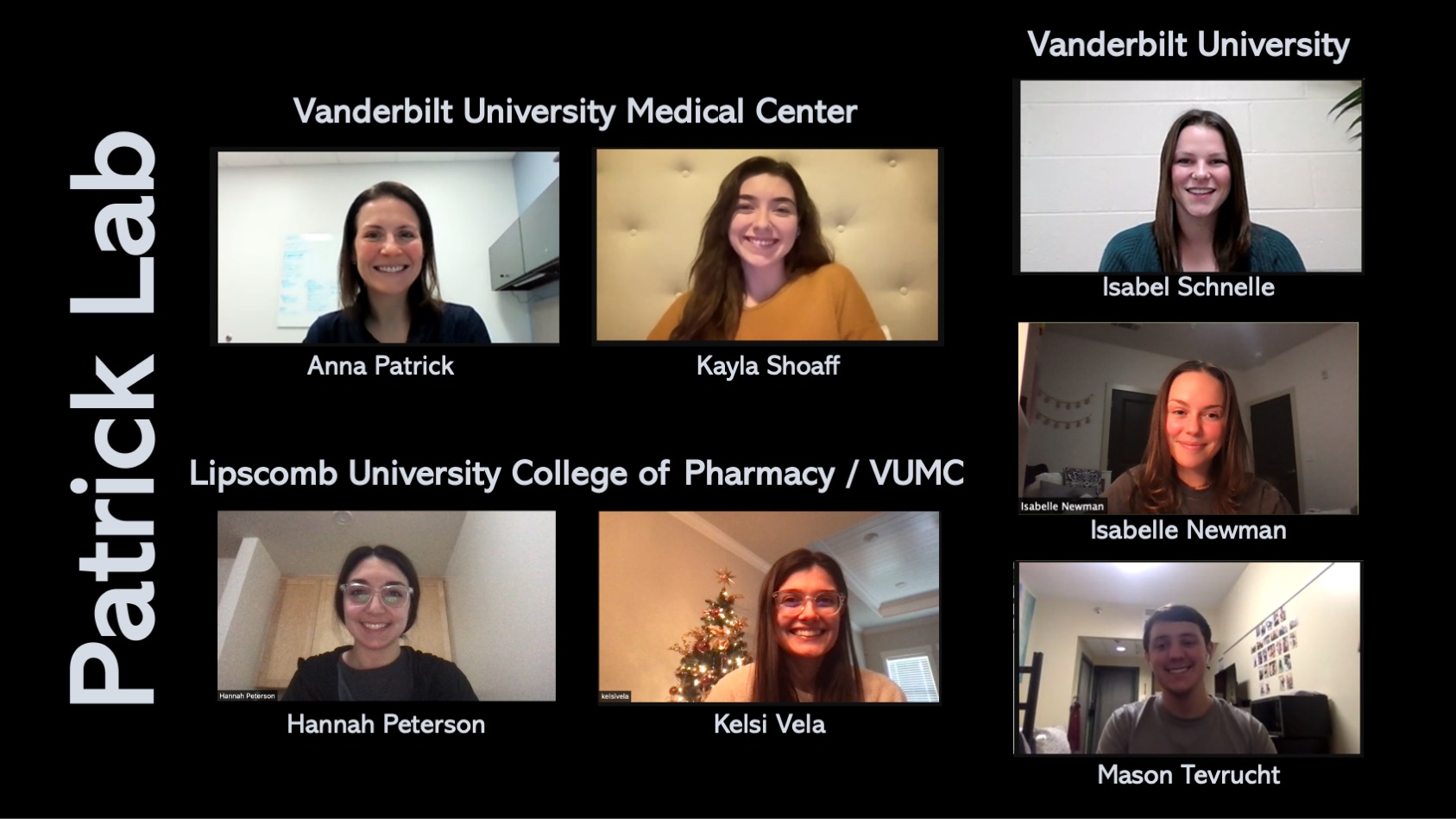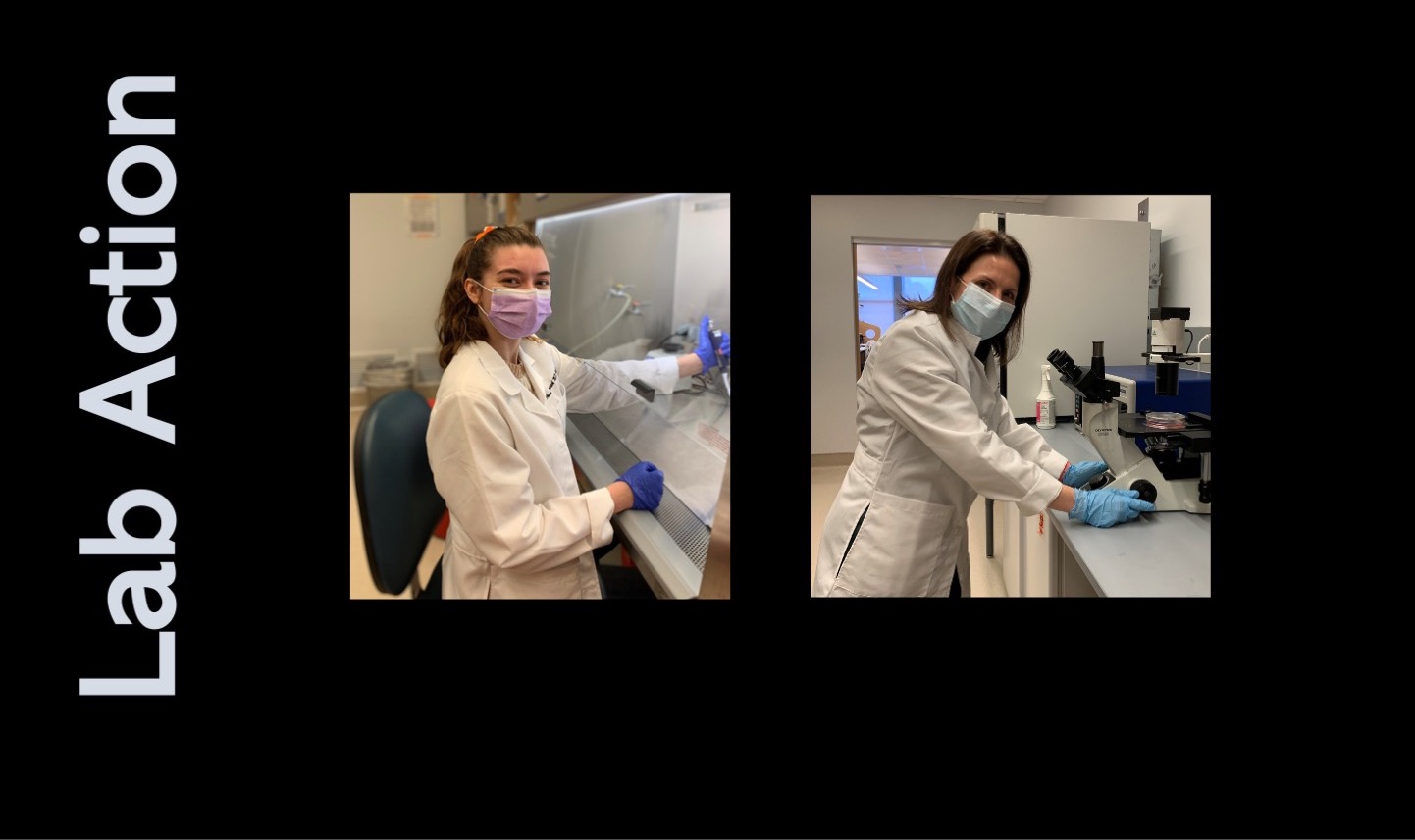Dr. Patrick earned her Master's degree from the University of Pennsylvania, Biochemistry and Molecular Biophysics, and her M.D./Ph.D. from the University of Texas Southwestern Medical Center. She's an Assistant Professor of Pediatrics Rheumatology at Vanderbilt where her work focuses on identifying and characterizing pathogenic molecular pathways in juvenile idiopathic arthritis and pediatric autoimmune disease.

What's your spirit animal?
A cat!
When you were 5, what did you want to be when you grew up?
I wanted to be a pediatrician or a paleontologist.
Tell us a funny story from the lab!
When I was in graduate school for biophysics my lab was full of quirky people. Five of us decided to drive together to the Texas Protein Folder’s Meeting. The person who volunteered to drive failed to mention that they don’t use air conditioning. About halfway through the drive, we noticed the temperature increasing (because Texas is hot). When the air conditioning was turned on, a cloud of warm dust and dirt flew out of the vents. The rest of the car ride was a series of similar events. Looking back this was funny, but we never drove anywhere together again.
How, when, and why did you decide to become a scientist?
I always wanted to be a doctor and loved science. However, I didn't know that being a scientist could be a job until I was in high school. I attended the Oklahoma School of Science and Math and became interested in biochemistry and protein structure. As an undergraduate, I started to realize how little is understood about the pathogeneses of chronic diseases. I decided that the way to change medicine is to learn more disease pathogeneses, and so I decided to become a physician-scientist. Also, I really like experiments.
How long have you been at VU/VUMC and what is your roll?
I came to VUMC for clinical training in Pediatrics and then Pediatric Rheumatology along with postdoctoral research. I became an Assistant Professor of Pediatrics in November 2019.

Patrick Lab: Kayla Shoaff (Lab Tech), Isabel Schnelle (VU Undergraduate), Isabelle Newman (VU Undergraduate), Mason Tevrucht (VU Undergraduate), Hannah Peterson (Lipscomb, PharmD Candidate), Kelsi Vela (Lipscomb, PharmD Candidate)
What does your lab do/study?
I am a pediatric rheumatologist and my lab studies the pathogenesis of pediatric autoimmune diseases with a focus on juvenile idiopathic arthritis (JIA). We are interested in how inflammatory cells develop in JIA and how genes contribute to this process. We are working to describe the relationships between genetics, clinical phenotypes, and medication responses. We use translational studies in biospecimens from pediatric subjects, molecular biology, and genetic approaches. We are also establishing a cohort of JIA patients in the Synthetic Derivative, a de-identified electronic health record that links to the BioVU DNA biorepository. We are using different approaches to decipher JIA pathogenesis to improve diagnostics and therapeutics.
How do you foresee these discoveries impacting human health?
The long-term goal of my research is to improve diagnostics, medications, and eventually identify cures for autoimmune diseases. My work focusing on JIA will have a direct impact on understanding the pathways causing increases in inflammatory cells andcytokines in JIA. We will use this information to explore how to use targeted biologic therapies in a personalized fashion.
What is one topic in your field that you are excited about right now?
I am excited about the use of single-cell level analysis to learn more about inflammatory cells in autoimmune disease. I am also excited about using genome editing to study the impact of genetic changes in human cells. I believe both techniques will be useful to understand the pathogenesis of complex diseases like JIA.
What aspect of your career do you enjoy the most, and why?
I enjoy working in the gray spaces where we do not have true answers in clinic or research. Autoimmune diseases are elusive and evolve over time, making them challenging to diagnose, treat, and understand. I see this as an area where research can discover new information to directly contribute to clinical advances in my field, which is exciting and impactful.

